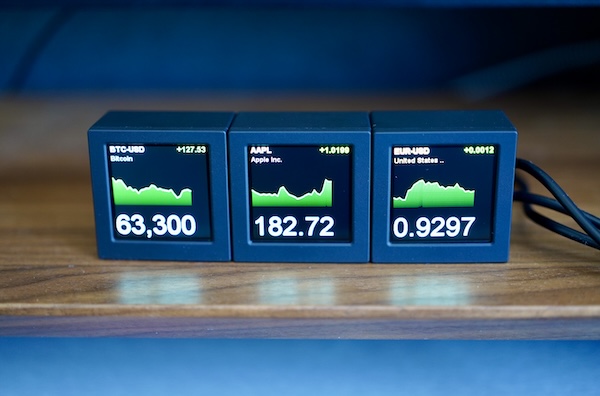Kublet: A review of a failed Kickstarter promise
Remember Kublet? The tiny, powerful data tracker promising to bring essential information to your fingertips? It launched on Kickstarter in June 2023 with a compelling vision, raising over $150,000 from 800 backers eager to support its development. They envisioned a sleek device displaying everything from stock tickers to weather updates. Sadly, the reality fell far short of the vision, culminating in a project that, for many backers, feels effectively ghosted, leaving those investors with little more than disappointment. And Kublet’s story echoes a similar recent situation with another platform, Tidbyt, highlighting a potentially troubling trend in the niche hardware space.
The initial promise of Kublet was compelling: a minimalist device, customizable apps, and a vibrant community of developers. But the comments section of the Kickstarter page tells a different story. A story of defective units, a clunky and feature-poor app, and a growing sense of betrayal. Backers reported receiving Kublets that simply didn’t work. Others struggled with the app, a “skin and bones” offering that lacked basic functionality and frequently provided inaccurate data. Many promised apps never materialized, leaving users with a limited and often frustrating experience.
I backed the project soon after it’s launce in 2023, and I was excited to receive my 3 Kublets almost a year later in 2024. The device itself seemed decently well-designed and aesthetically pleasing, even though it did feel a bit cheep. The software was a different story. The Kublet apps where slow, buggy, and lacked many of the features promised in the campaign. The companion mobile app was empty, and the few available apps for the Kublet were poorly designed and often didn’t work. My Kublets quickly became a glorified paperweight, sitting on my desk and displaying outdated information most of the time.
Beyond the product itself, communication from the creators dwindled. Concerns raised in the comments were often met with silence, dismissive responses, or generic troubleshooting advice. Shipping issues plagued the project, with unexpected costs and address errors adding to the growing dissatisfaction. The promised developer community, meant to extend the Kublet’s capabilities, was hampered by inadequate tools and a lack of support.
The comments section of the projects Kickstarter page, once a hub of enthusiastic anticipation, transformed into a repository of complaints, frustrations, and accusations of a scam. Many backers feel they were sold a bill of goods, receiving a product that was both functionally lacking and far from the polished device showcased in the campaign.
This narrative bears a striking resemblance to recent events surrounding Tidbyt, a similar retro-style display platform. Tidbyt, while initially praised for its aesthetic and functionality, also saw its developers seemingly abandon their community over night. Similar to the Kublet situation, Tidbyt users reported a sudden decline in communication, a lack of updates, and a sense that their feedback was no longer valued. The Tidbyt developer community, once a vibrant hub of innovation, has also experienced a significant drop in activity.
These parallel experiences raise questions about the viability and sustainability of niche hardware projects, particularly those relying heavily on community development. Building and maintaining a thriving ecosystem of developers and users requires consistent effort, transparent communication, and a genuine commitment to addressing community needs. Both Kublet and Tidbyt demonstrate how easily this trust can be eroded when communication breaks down and promises go unfulfilled.
For both Kublet and Tidbyt users, the lack of ongoing support and communication feels like a betrayal. It leaves backers and early adopters with expensive devices that have limited functionality and diminishing potential. It also casts a shadow over future Kickstarter campaigns and raises concerns about the risks associated with backing niche hardware projects.
Months after the initial shipments, the Kublet Kickstarter page and Discord channels remains largely inactive. Updates have ceased, and the creators’ presence in the comments has become non-existent. The Tidbyt situation follows a similar trajectory. For many backers of both projects, they have become synonymous with broken promises and a creator team that appears to have vanished.
These projects serve as cautionary tales, reminding us that even the most promising Kickstarter campaigns can ultimately end in disappointment and silence. They leave behind frustrated users, piles of unusable hardware, and a lingering sense of what could have been.
